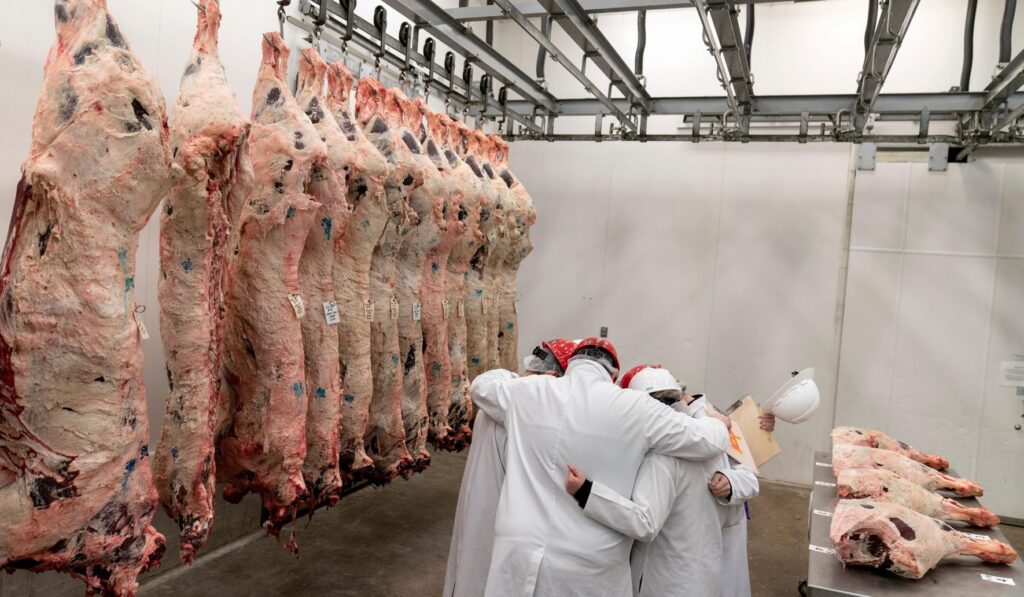President Trump has accused meatpacking companies of driving up beef prices and asked the Department of Justice to investigate, urging action to “protect consumers.”
President Trump says meatpacking companies are driving up beef prices and has called on the Department of Justice to probe the industry to “protect consumers.” That short statement put pressure on federal enforcers and shifted the focus onto a sector many Americans blame for high grocery bills. The claim landed during a time of heightened concern over food costs and market concentration.
From a Republican perspective, calling for scrutiny of concentrated industries fits a common-sense view: markets work best when they are competitive, and government should act when competition is undermined. The beef-processing sector has become a symbol of how consolidation can leave both ranchers and shoppers exposed to price swings. Republicans can stress enforcement that restores fair play without heavy-handed permanent regulations.
Critics of the big processors argue that when a handful of firms control processing capacity, they can blunt price signals that would otherwise help producers and consumers. That dynamic squeezes cattle producers at the farm gate while store prices climb, creating a political and economic squeeze from both ends. The result is frustration among voters who see higher bills and declining choices at the meat counter.
The Department of Justice has tools to investigate potential anticompetitive conduct, including inquiries into price-fixing, collusion, or exclusionary practices. A focused investigation can force transparency and correct behavior when companies game the system, and Republicans often frame this as enforcing the law rather than expanding government’s market role. If wrongdoing is found, the DOJ can pursue remedies that restore competitive conditions and deter future abuses.
Market-based fixes also deserve attention: encouraging more processing capacity, lowering barriers for regional packers, and ensuring ranchers can access fair contracts are practical steps that align with conservative ideas. Supporting smaller processors and reducing needless regulatory burdens can create more players in the supply chain and increase consumer choice. Those moves keep power decentralized and make the market more resilient to shocks.
Farmers and ranchers are central to this debate, and many say they have little leverage when selling cattle into a concentrated system. When packers set the terms and squeeze margins, it undercuts producers’ ability to invest and weather bad years. A Republican approach often emphasizes protecting those who produce food while fixing the market incentives that allow middlemen to capture outsized gains.
Supply-chain disruptions, plant closures, or export shifts can amplify price movements, and that volatility feeds public anger at price spikes at the grocery store. Asking the DOJ to look is a way to respond quickly to the public’s concern without promising radical reforms that could backfire. Republicans tend to prefer targeted enforcement and policies that restore competition rather than sweeping nationalizations or price controls.
Calling for an investigation also sends a political message: accountability matters whether the industry is large or small, and elected officials can press federal agencies to act when markets fail citizens. That stance can resonate with voters across the spectrum who want fair prices and functional markets. The push for scrutiny keeps the issue in the spotlight and forces companies to explain their pricing decisions.
If the Department of Justice opens a formal inquiry, the public will expect evidence-driven results and remedies that improve market functioning. That process can reveal whether price spikes were the product of structural problems, temporary shocks, or unlawful conduct. Whatever conclusions emerge, insisting on clear rules and transparent markets is a position Republicans can defend while backing lawful enforcement that aims to protect consumers and producers alike.



